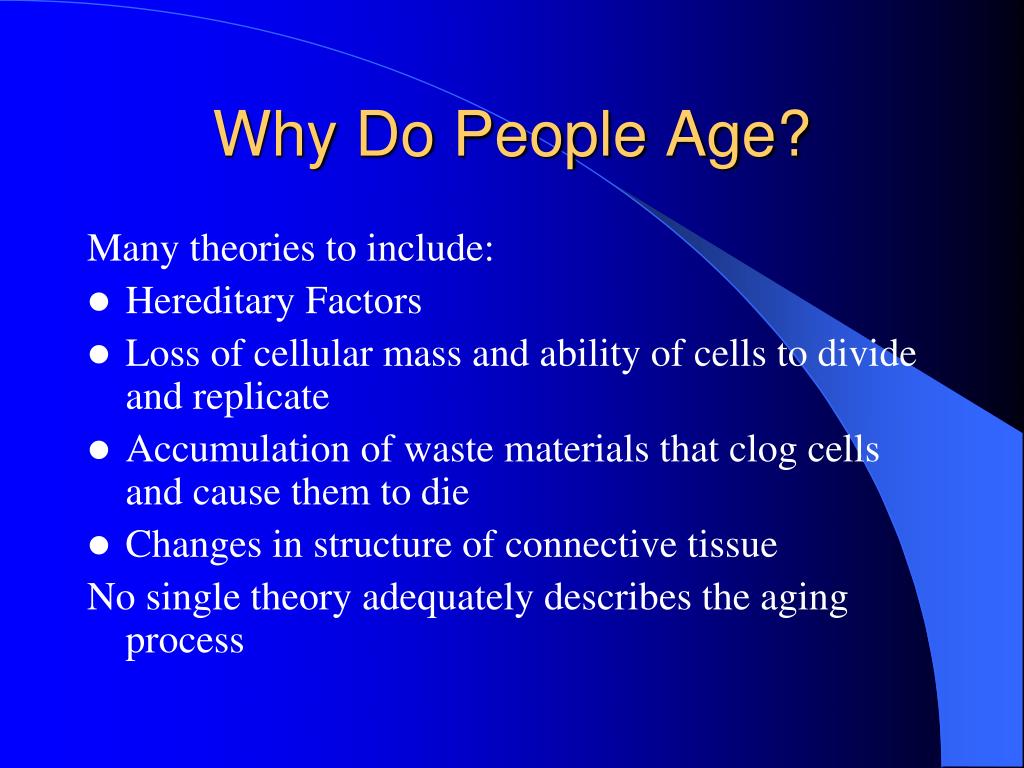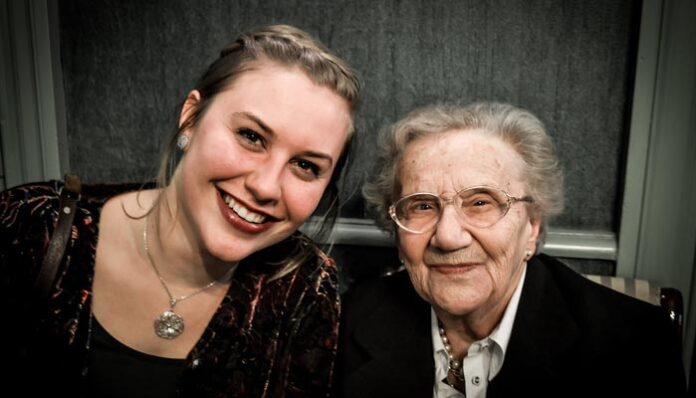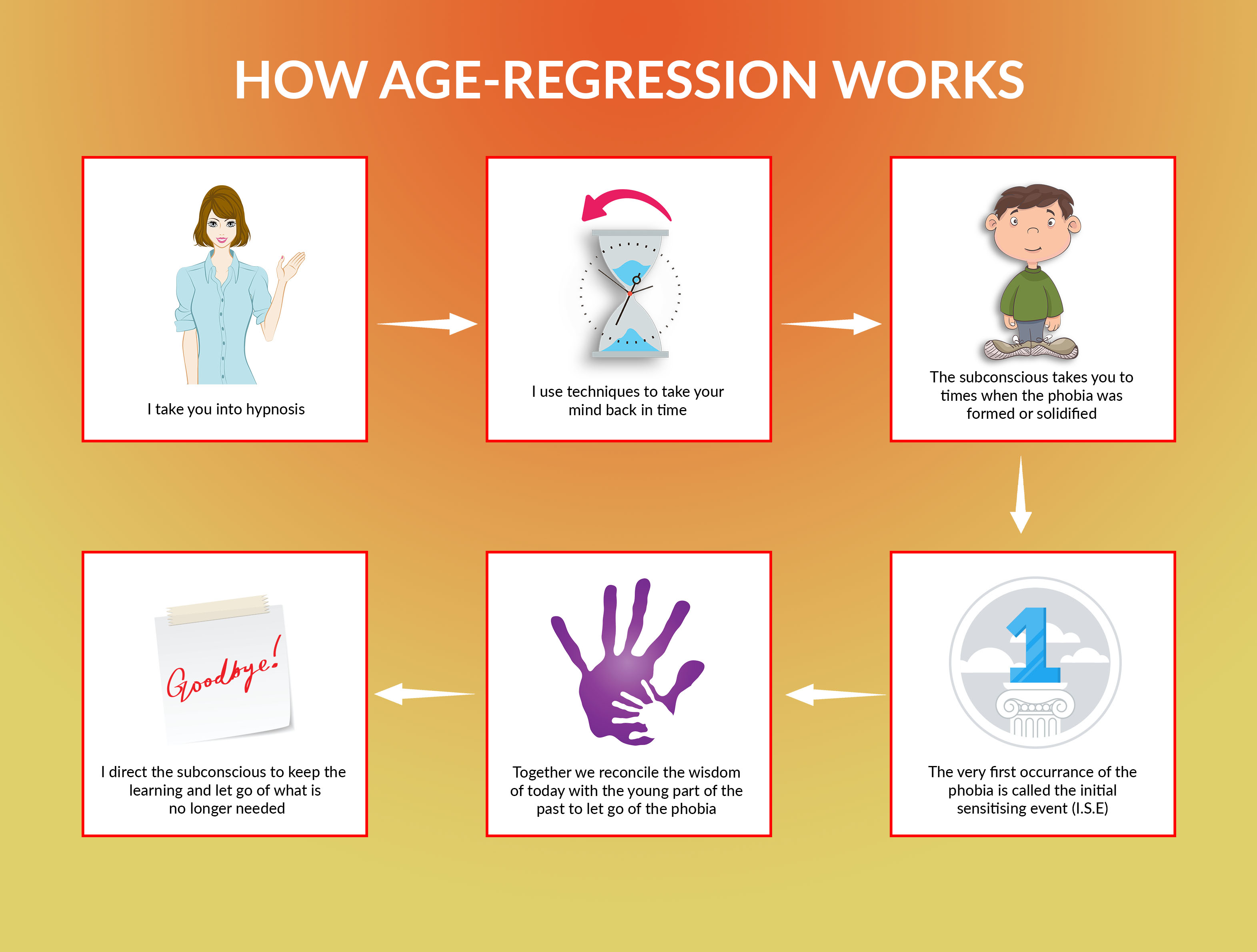Aging is a natural process that occurs in every living organism. It is a gradual process that starts from the day we are born and continues throughout our lives. The human body goes through several changes as we age, both internally and externally, and this leads to the signs and symptoms of aging. In this article, we will explore the reasons behind why people age and what factors contribute to it.
The Role of Genetics

Genetics plays a significant role in the aging process. Our genes control how we develop and how long we live. Some people are born with genes that make them more susceptible to certain diseases or conditions that can accelerate the aging process. For example, some people may inherit genes that increase their risk of developing heart disease, cancer, or Alzheimer's disease as they age.
The Importance of Lifestyle

Our lifestyle choices also play a crucial role in the aging process. Smoking, excessive alcohol consumption, lack of exercise, and poor diet are all factors that can contribute to premature aging. These lifestyle choices can increase the risk of developing chronic diseases such as heart disease, cancer, and diabetes, which can accelerate the aging process.
The Effects of Oxidative Stress
Oxidative stress is a natural process that occurs in the body when there is an imbalance between free radicals and antioxidants. Free radicals are unstable molecules that can damage cells and contribute to the aging process. Antioxidants are molecules that neutralize free radicals and protect cells from damage. As we age, the body's ability to produce antioxidants decreases, leading to an increase in oxidative stress and accelerated aging.
The Role of Hormones

Hormones play a crucial role in the aging process. As we age, the body produces fewer hormones such as testosterone and estrogen, which can lead to a number of changes in the body. These changes can include a decrease in bone density, muscle mass, and skin elasticity, which are all signs of aging.
The Effect of Telomeres

Telomeres are the protective caps at the end of each DNA strand. As we age, our telomeres become shorter, which can lead to cellular damage and aging. Telomere shortening is a natural part of the aging process, but it can be accelerated by factors such as smoking, stress, and poor diet.
The Importance of Sleep

Sleep is essential for the body to function properly. Lack of sleep can lead to a number of health problems, including accelerated aging. During sleep, the body repairs and regenerates cells, which is essential for healthy aging. Chronic sleep deprivation can lead to increased oxidative stress, inflammation, and a weakened immune system, all of which can accelerate the aging process.
The Role of Inflammation

Inflammation is a natural response of the immune system to injury or infection. However, chronic inflammation can lead to cellular damage and accelerated aging. Chronic inflammation has been linked to a number of age-related diseases such as Alzheimer's disease, arthritis, and heart disease.
The Effect of Environmental Factors

Environmental factors such as pollution, UV radiation, and exposure to toxins can all accelerate the aging process. These factors can damage cells and DNA, leading to premature aging and an increased risk of developing age-related diseases.
The Importance of Mental Health

Mental health is an essential component of healthy aging. Stress, anxiety, and depression can all contribute to accelerated aging. Chronic stress can increase oxidative stress and inflammation, which can damage cells and accelerate the aging process. Maintaining good mental health through activities such as meditation, yoga, and counseling can help slow down the aging process.
The Role of Exercise

Exercise is essential for healthy aging. Regular physical activity can help maintain muscle mass, bone density, and cardiovascular health, all of which are essential for healthy aging. Exercise has also been shown to increase the production of antioxidants, which can help protect cells from damage and slow down the aging process.
The Effect of Sun Exposure

Excessive sun exposure can accelerate the aging process by damaging the skin. UV radiation can cause skin discoloration, wrinkles, and other signs of premature aging. Protecting the skin from the sun by wearing sunscreen, hats, and protective clothing can help slow down the aging process.
The Importance of Social Connections

Social connections are essential for healthy aging. Maintaining close relationships with family and friends can help reduce stress, anxiety, and depression, all of which can contribute to accelerated aging. Social connections have also been linked to a lower risk of developing age-related diseases such as Alzheimer's disease.
The Role of Nutrition

Nutrition plays a crucial role in healthy aging. A diet rich in fruits, vegetables, whole grains, and lean protein can provide the body with the nutrients it needs to function properly. These nutrients can help protect cells from damage, reduce inflammation, and slow down the aging process.
The Effect of Medications

Medications can also contribute to the aging process. Some medications can cause side effects such as fatigue, weakness, and cognitive decline, which are all signs of aging. It is essential to speak with a healthcare provider about the potential side effects of medications and to monitor their effects on the body.
The Importance of Preventive Healthcare
Preventive healthcare is essential for healthy aging. Regular check-ups, screenings, and vaccinations can help prevent or detect age-related diseases early on. Preventive healthcare can also help identify and manage risk factors for accelerated aging.
The Effect of Chronic Diseases
Chronic diseases such as heart disease, cancer, and diabetes can accelerate the aging process. These diseases can cause cellular damage, inflammation, and oxidative stress, all of which are signs of aging. It is essential to manage chronic diseases through lifestyle changes, medications, and other treatments to slow down the aging process.
The Importance of Mental Stimulation

Mental stimulation is essential for healthy aging. Engaging in activities that challenge the brain such as reading, playing games, and learning new skills can help improve cognitive function and slow down the aging process. Mental stimulation has also been linked to a lower risk of developing age-related diseases such as dementia.
The Role of Hormone Replacement Therapy

Hormone replacement therapy (HRT) is a treatment that involves replacing hormones such as estrogen and testosterone that decrease as we age. HRT can help improve symptoms such as hot flashes, mood changes, and sexual dysfunction. However, HRT has also been linked to an increased risk of certain cancers and other health problems, so it is essential to weigh the risks and benefits with a healthcare provider.
The Effect of Alcohol Consumption

Excessive alcohol consumption can accelerate the aging process by damaging cells and tissues in the body. Long-term alcohol abuse can lead to liver damage, cognitive decline, and other signs of premature aging. Moderate alcohol consumption, on the other hand, has been linked to a lower risk of certain age-related diseases such as heart disease.
The Importance of Self-Care

Self-care is essential for healthy aging. Taking care of oneself through activities such as exercise, healthy eating, and stress management can help slow down the aging process. Self-care can also help improve mental health and quality of life as we age.
Conclusion
Aging is a natural process that occurs in every living organism. The reasons behind why people age are complex and multifactorial, but genetics, lifestyle choices, and environmental factors all play a significant role. By taking care of our bodies and minds through healthy lifestyle choices, preventive healthcare, and mental stimulation, we can slow down the aging process and enjoy a longer, healthier life.